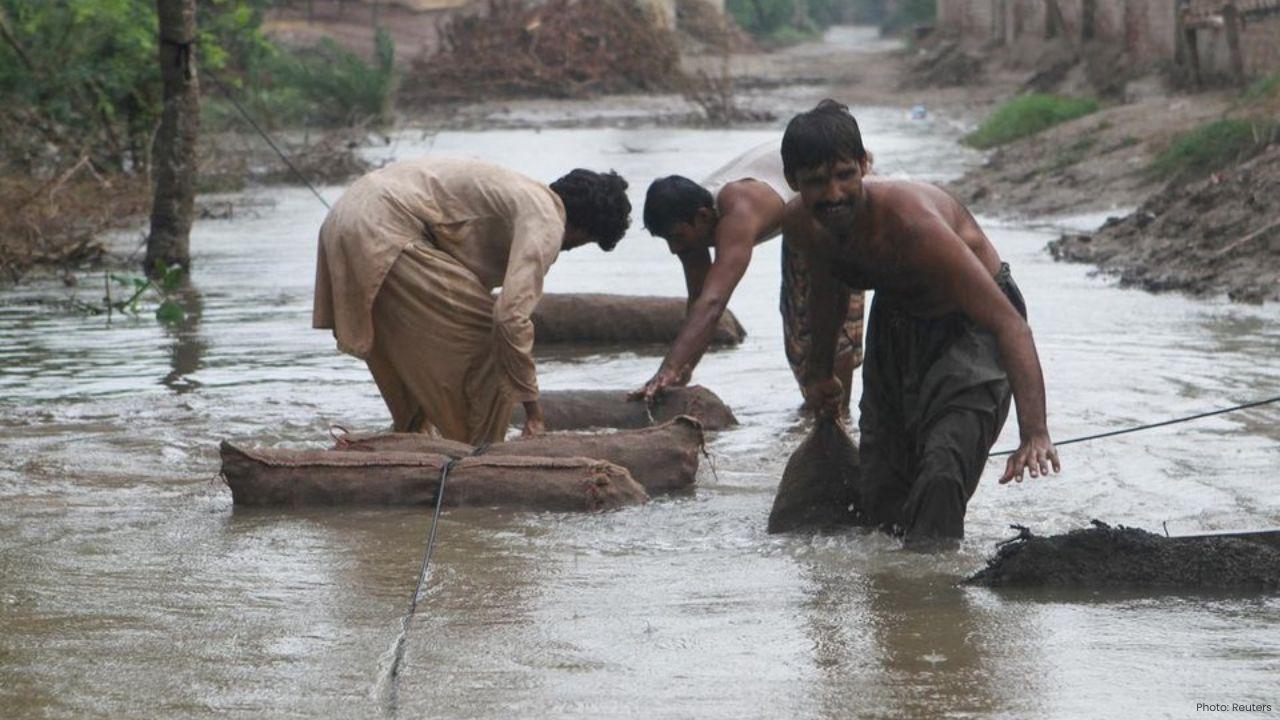
Post by : Vansh Kumar
The planet we call home is facing unprecedented challenges. From climate change and pollution to deforestation and biodiversity loss, the environmental issues confronting us are urgent and complex. Yet, amid these challenges lies hope: with collective action, informed choices, and sustainable practices, we can answer nature’s call and safeguard the Earth for future generations. Protecting the environment is not a distant responsibility—it is a pressing obligation that demands attention, innovation, and commitment from individuals, communities, businesses, and governments alike.
Environmental stewardship is the conscious effort to manage natural resources responsibly while ensuring their availability for future generations. The principle emphasizes the interdependence of humans and nature. By addressing pollution, preserving ecosystems, and promoting sustainability, we contribute to the health of the planet. Every action, no matter how small, can have a cumulative impact on the environment. Sustainable practices not only protect natural habitats but also enhance quality of life and ensure that resources remain abundant for the generations to come.
Climate change is perhaps the most pressing environmental challenge of our time. Rising global temperatures, extreme weather events, and shifting climate patterns threaten ecosystems and human communities alike. Mitigating these effects requires both global cooperation and local action. By prioritizing eco-friendly solutions such as renewable energy, energy efficiency, and low-carbon lifestyles, societies can significantly reduce greenhouse gas emissions. Nature’s call reminds us that immediate action is crucial if we are to preserve a habitable planet for future generations.
Biodiversity is the foundation of a healthy planet. Forests, oceans, wetlands, and grasslands are home to countless species that maintain ecological balance. Yet, human activities such as deforestation, overfishing, and habitat destruction are driving species to extinction at alarming rates. Protecting biodiversity is not only a moral responsibility but also essential for ecosystem resilience. Practices like reforestation, habitat restoration, and wildlife conservation exemplify how sustainable practices can help maintain the delicate balance of life on Earth.
Agriculture plays a dual role in both supporting human life and impacting the environment. Conventional farming practices often lead to soil degradation, excessive water usage, and chemical pollution. Sustainable practices in agriculture—such as organic farming, crop rotation, integrated pest management, and precision irrigation—help protect the environment while ensuring food security. By adopting environmentally responsible farming methods, communities can reduce their ecological footprint and contribute to the global effort to answer nature’s call.
Waste accumulation and pollution pose significant threats to both human health and ecosystems. Landfills, plastic pollution, and industrial waste contaminate soil, water, and air. Small yet deliberate actions like recycling, composting, reducing single-use plastics, and adopting circular economy models can mitigate these challenges. Communities that embrace eco-friendly solutions demonstrate that effective waste management is achievable and impactful, reinforcing the idea that collective action leads to lasting environmental benefits.
Transitioning to renewable energy sources is critical in combating climate change. Solar, wind, hydro, and geothermal power offer sustainable alternatives to fossil fuels. Technological innovation also plays a key role in environmental protection. Smart grids, electric vehicles, and energy-efficient appliances help reduce carbon emissions and resource consumption. By embracing eco-friendly solutions and technological advancements, societies can respond to nature’s call with measurable impact, creating a sustainable and resilient energy future.
Education and community involvement are essential for fostering environmental responsibility. Awareness campaigns, workshops, and grassroots initiatives empower individuals to take action. Teaching children about sustainability, conservation, and responsible consumption ensures that future generations inherit both the knowledge and the motivation to protect the planet. When communities are engaged, sustainable practices become part of everyday life, reinforcing the collective effort to respond to nature’s call.
Businesses have a significant influence on environmental outcomes. Corporations that adopt eco-friendly practices, reduce carbon footprints, and innovate with green technologies contribute meaningfully to environmental protection. Consumer advocacy and responsible purchasing decisions further incentivize sustainable business operations. By integrating eco-friendly solutions into their strategies, companies can demonstrate leadership and support the global movement to safeguard natural resources for future generations.
While policy, technology, and corporate initiatives are vital, individual actions play a crucial role. Simple behaviors such as conserving water, reducing energy consumption, minimizing plastic use, and supporting sustainable brands collectively drive environmental change. By recognizing the impact of personal choices, individuals can contribute to larger environmental goals, embodying the essence of nature’s call.
Protecting the planet requires a long-term vision that transcends immediate convenience and short-term gains. Policies, lifestyle changes, and technological innovations must align with the principles of sustainability. Every effort—whether it’s planting a tree, reducing waste, or advocating for clean energy—contributes to a healthier, more resilient planet. Keeping nature’s call at the forefront ensures that current actions honor the needs of future generations, creating a legacy of environmental stewardship.
The information provided in this article is for general informational purposes only. GCC news network makes no guarantees regarding the accuracy, completeness, or reliability of the content. Readers are encouraged to exercise their own judgment and seek professional advice when necessary.
#trending #latest #NaturesCall #ProtectOurPlanet #SustainablePractices #EcoFriendlySolutions #FutureGenerations #ClimateAction #GoGreen #EnvironmentalAwareness #ConservationMatters #GreenLiving #GCCNews #GCCUpdates #GCCTech #GCCInnovation #ArabWorldNews #GCCTrends #DigitalGCC #GCCBusiness #GCCFuture #GCCTechnology #GCCInsights










Three Injured After Ceiling Collapse At Liat Towers Singapore
Three people were injured after a ceiling collapsed at Liat Towers, Singapore. Eyewitnesses helped v

US Authorities Arrest Suspect In Charlie Kirk Shooting Case
US President Trump confirms suspect in Charlie Kirk shooting has been arrested after a minister turn

EU Regulators Approve Microsoft Teams Changes To End Antitrust Case
Microsoft Teams update, EU antitrust decision, Office software changes, competition rules compliance

Pakistan Prepares To Face Oman In Asia Cup Before India Clash
Pakistan prepares for Asia Cup opener against Oman, aiming for a strong start and building confidenc

Rescue Boat Capsizes in Pakistan Floods, 9 Dead in Multan
A rescue boat capsized during flood relief in Multan, Pakistan, killing nine. Floods affect millions

Bangladesh Beat Hong Kong In Asia Cup Opener With Litton’s 59
Bangladesh began their Asia Cup with a win against Hong Kong. Litton Das scored 59 and Hridoy added